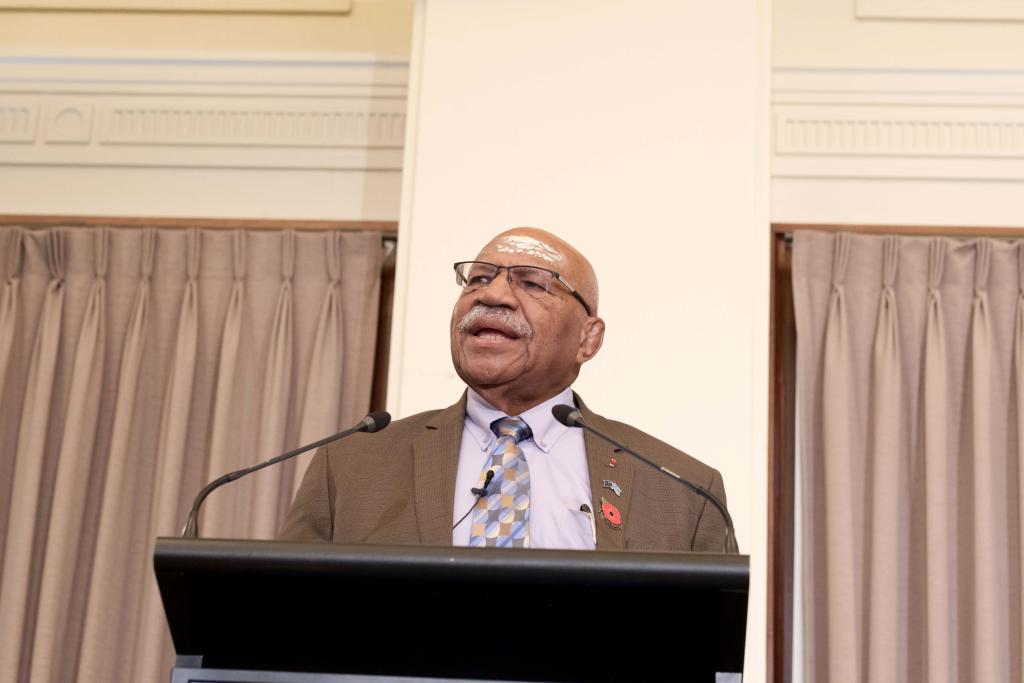Fiji is witnessing a gigantic outcry about proposed salary increases for ministers and parliamentarians. This controversy may seem to articulate deep concerns about the hardship being experienced by Fiji’s citizens and about the relative affluence of the political classes. But there is more to this episode than meets the eye.
Some veteran politicians are grandstanding with one eye on the next election. Others are anticipating the demise of some of the existing political parties and are hoping to pick up their votes. The government has unwisely stumbled into a trap of its own making, which is all too easily depicted by journalists reliant on over-simplistic pork-barrelling cliches as a case of politicians with their “snouts in the trough”.
Some in opposition FijiFirst party have chosen to use this issue around which to cement an internal schism that has been festering beneath the surface for some time and which is only now coming to a head. The controversy also, unfortunately, looks to have weakened the governing coalition, with the National Federation Party (NFP) opposed to the pay increases but the People’s Alliance Party (PAP) in favour and Prime Minister Sitiveni Rabuka threatening action against the NFP for its rebellion.

The salary increases themselves are not unreasonable. Following the recommendations of the Parliamentary Emoluments Committee, the pay for MPs would increase from F$50,000 to F$95,000 and that for a minister would increase from F$160,000 up to F$200,000. That would mean, after the increases, that an MP in Fiji earns between half and one-third of what a New Zealand MP would earn, and that a Fiji minister earns around a half the salary earned by a member of cabinet in New Zealand. As for Australia, there the base salary for an MP is around A$211,250, or F$314,045 per annum, which is more than three times the proposed Fiji level.
Comparisons with countries with lower levels of per capita income might be more appropriate. Samoan and Tongan MPs get paid considerably less. In Samoa, ministers earn base salaries of T$132,000 per annum, equivalent to around F$109,000 each year, but that does not include sizable allowances. The proposed new base Fiji salary for an MP would be slightly above that earned by a lecturer at the University of the South Pacific (F$73-F$88,000 per annum) but below that earned by a senior lecturer at the same institution (F$117-F$127,000 per annum).
Having a parliamentary committee decide on salary increases for MPs and ministers was always likely to generate an outcry in 21st century Fiji.
The core problem is that parliamentarians, and ministers, should not be determining their own salaries. The 2014 Parliamentary Remunerations Act, which was passed by decree on 3 October 2014, not only allows parliament to determine “by resolution” the remuneration payable to MPs, ministers and assistant ministers. It also created huge differences between the base salaries of MPs (only F$50,000 pa) and those of ministers (F$185-200,000 pa) and that of the Prime Minister (F$328,750 pa). Under the FijiFirst governments, life was made tough for parliamentarians sitting on the opposition benches.
That law does allow parliament to seek outside advice, but the determination still ultimately lies with parliament. By contrast, MPs salaries in New Zealand are determined by an independent remuneration authority. Likewise in Australia, the Remuneration Tribunal* decides on politicians salaries. In the United Kingdom, such income-levels are set by an Independent Parliamentary Standards Authority.
Under the 1997 Constitution in Fiji, too, a Parliamentary Emoluments Commission determined the salaries of the Prime Minister, ministers, the Speaker and MPs. It provided that “A person whose remuneration is reviewable by the Commission is not eligible to be appointed as a member of the Commission”. Appointments to that Commission, however, were still controlled by parliament under the 1997 Constitution.
Having a parliamentary committee decide on salary increases for MPs and ministers was always likely to generate an outcry in 21st century Fiji. When the PAP-NFP-SODELPA government took office, it was sensitive to the bad look of the big pay increases awarded to ministers and CEOs under the previous government. In January 2023, a further 10% pay cut for ministers was announced, on top of the 20% cut during the Covid-19 pandemic. In line with the PAP manifesto, the 2024 Parliamentary Emoluments Special Committee report does suggest reviving the Higher Salaries Commission to handle remuneration for the President and the Speaker, but it does not recommend the establishment of an outside body to determine MP and ministerial pay.
Only the NFP submission to the committee argues that the Committee itself “must not make any determination whatsoever” and that salaries should instead be determined by an independent entity. That is the only way that politicians on both sides of the house can insulate themselves from public criticism.
* This article was corrected to note the Remuneration Tribunal sets parliamentarian salaries, not the Independent Parliamentary Expenses Authority as previously stated.


